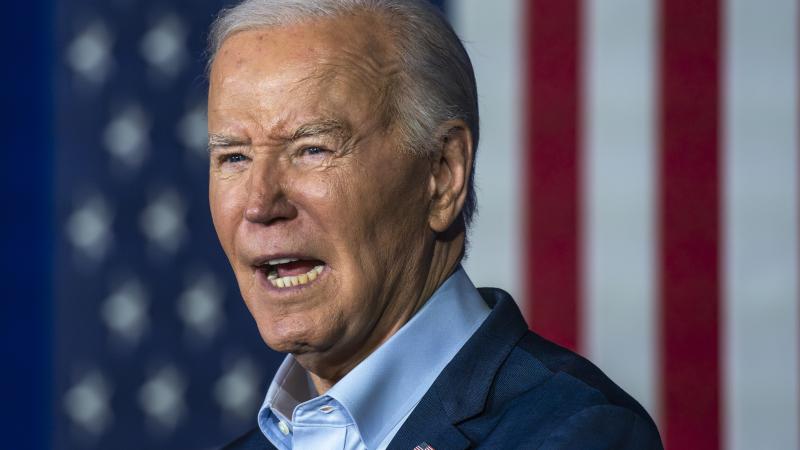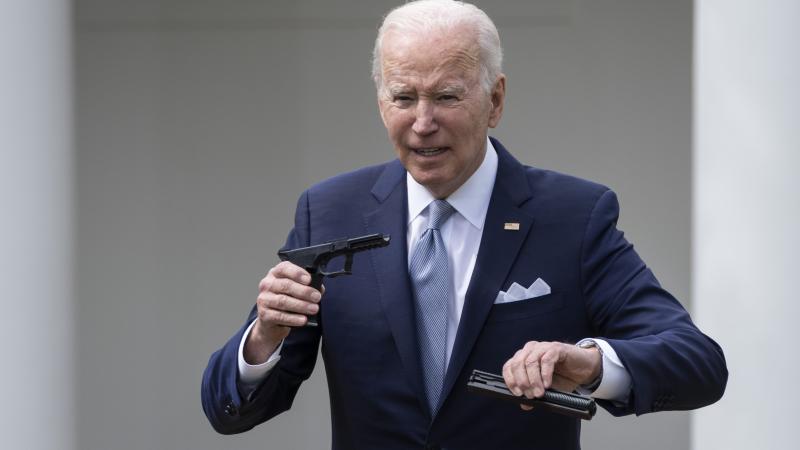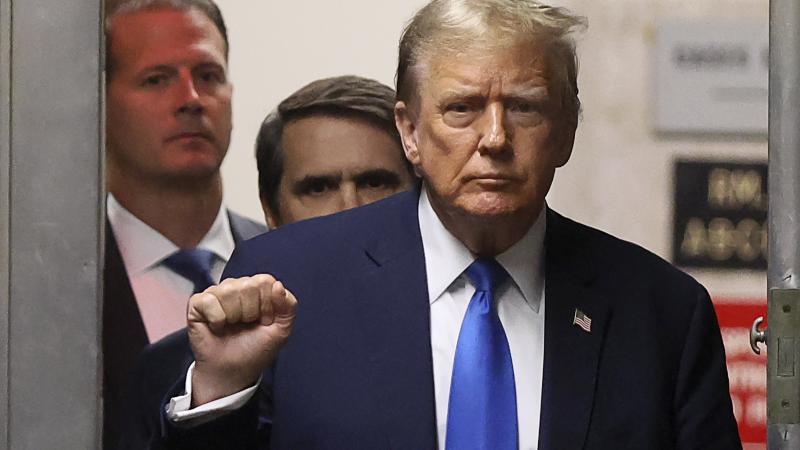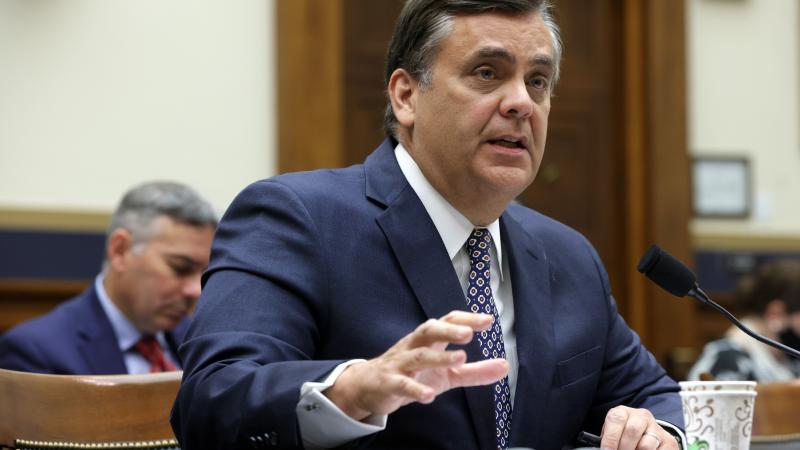Trump pardons ex-national security adviser Michael Flynn, says case should never been brought
Attorney General William Barr earlier this year asked a federal court to allow the Justice Department to drop the case
President Trump on Wednesday fully pardoned his former national security adviser Michael Flynn, bringing to end a tumultuous four-year criminal case that felled the three-star general before prosecutors reversed course and declared they had improperly pursued his prosecution.
Flynn, a retired Army lieutenant general, had pleaded guilty to lying to the FBI about talking with a Russian diplomat during the 2016 Trump administration transition period.
Attorney General William Barr earlier this year asked a federal court in Washington, D.C., to allow the Justice Department to drop the case. However, the matter has since been tied up in legal proceedings.
Mike Flynn seeks to remove judge overseeing case, alleging bias
Trump informed the general and his lawyer Sidney Powell of the decision Wednesday afternoon, ahead of Thanksgiving Day. Flynn was elated by the news and the two men talked "like they had never missed a day since the campaign or early White House days," an eyewitness told Just the News.
Trump announced the news on his Twitter page. "It is my Great Honor to announce that General Michael T. Flynn has been granted a Full Pardon. Congratulations to @GenFlynn, and his wonderful family, I know you will now have a truly fantastic Thanksgiving!" he tweeted.
Sidney Powell, the defense lawyer who doggedly sought to prove Flynn's innocence post conviction, applauded the decision, suggesting it was necessary because the U.S. District Judge Emmet Sullivan had refused to dismiss the lying charge, even after DOJ pleaded it be done.
"The pardon of Michael Flynn is solely up to the President, but given the corruption we have witnessed in the judiciary and multiple agencies of government executed against General Flynn, this persecution should end," she said. "The FBI and DOJ have been a national embarrassment for more than 15 years. It was my fervent hope to make our judicial system work to exonerate an innocent man--as all the Left would want were he anyone but Trump or Michael Flynn, but enough is enough. This is sick. It's painfully obvious Judge Sullivan is playing an evil political game with a good man's life and family. The entire country deserves better."
The White House said Trump decided to grant the pardon because he believes Flynn "should never have been prosecuted."
"An independent review of General Flynn’s case by the Department of Justice—conducted by respected career professionals—supports this conclusion. In fact, the Department of Justice has firmly concluded that the charges against General Flynn should be dropped. This Full Pardon achieves that objective, finally bringing to an end the relentless, partisan pursuit of an innocent man," the White House said.
In May, Barr recommended that Sullivan reverse the Flynn conviction and drop the criminal charges, after Powell had discovered several incidents of the FBI overstepping its authority in the Flynn matter and the larger Russia-Trump campaign collusion probe.
The recommendation came an hour after the lead prosecutor in the case withdrew. The federal prosecutor, Brandon Van Grack, was also a member of Special Counsel Robert Mueller's team who led the prosecution of Flynn. Van Grack resigned from the Flynn case without explanation.
Timeline of Justice Department's Case Against Michael Flynn
The government said at the time that recent revelations from evidence withheld from the court for years warranted the dramatic recommendation, including that the FBI interview in which Flynn was accused of lying was not warranted by law – after agents had already concluded there was no criminal conduct or collusion with Russia by the retired general.
"The Government has concluded that the interview of Mr. Flynn was untethered to, and unjustified by, the FBI’s counterintelligence investigation into Mr. Flynn – a no longer justifiably predicated investigation that the FBI had, in the Bureau’s own words, prepared to close because it had yielded an 'absence of any derogatory information,'" the government said.
"The Government is not persuaded that the January 24, 2017 interview was conducted with a legitimate investigative basis and therefore does not believe Mr. Flynn’s statements were material even if untrue. Moreover, we do not believe that the Government can prove either the relevant false statements or their materiality beyond a reasonable doubt," the statement also reads.
Powell, who took over the case after Flynn's 2017 guilty plea and aggressively challenged the government's conduct, hailed the decision.
"This is an historic moment for the entire country and crucial to the restoration of the rule of law," she told Just the News. "I tip my hat to the Attorney General and all the honest prosecutors and agents who fought to find the truth. Sunlight is the best disinfectant."
FBI analysts working on the Flynn-Russia investigation originally planned to end the inquiry in fall 2016 and eventually bought liability insurance fearing they could be sued after their bosses continued to keep the investigation open based on "conspiracy theories," show text messages made public in September.
"We all went and purchased professional liability insurance," one analyst texted on Jan. 10, 2017, just 10 days before Trump took office.
"Holy crap," a colleague responded. "All the analysts too?"
FBI analysts bought insurance fearing they'd be sued for misconduct
Trump has said from essentially the beginning of the case that Flynn had been treated unfairly. However, he had until Wednesday purportedly resisted pardoning Flynn, instead waiting for him to be exonerated in the courts.
Though Flynn had pleaded guilty to lying to the FBI, he had sought to withdraw his plea after evidence emerged that Powell and other lawyers said showed he was "framed" for committing no crime.
Those revelations included:
- FBI agents who investigated Flynn's contacts with Russian ambassador Sergey Kislyak during the presidential transition in 2016 concluded Jan. 4, 2017, to close the investigation because they found no derogatory evidence of a crime or counterintelligence threat.
- The agents were stopped from closing the case by then-Special Agent Peter Strzok, who claimed in text messages that FBI leadership, which would include Director James Comey, on the 7th floor had intervened.
- FBI officials began discussing arranging an interview with Flynn in the absence of any evidence of wrongdoing. A senior FBI official, William Priestap, raised concerns about the strategy, writing in handwritten notes a question about whether the FBI was "playing games" and looking to catch Flynn in a lie "so we can prosecute him or get him fired.
- Senior DOJ officials had told Mueller's team that they were concerned by the FBI conduct in investigating Flynn and believed the bureau's pretext for interviewing the White House adviser – that he might have violated the Logan Act – was a stretch.
- FBI agents discussed how they might avoid or slip in the required warning to Flynn during the interview that lying to the FBI could be prosecuted.
The revelation also focused on then-Deputy FBI Director Andrew McCabe's behavior, suggesting he pressed reluctant FBI officials to proceed with the Flynn interview and then made the call himself to invite Flynn, in hopes he would come solo without any lawyers or White House officials in tow.
Former acting Attorney General Yates acknowledges Comey 'went rogue' on Flynn interview
The prosecutors cited text messages suggesting McCabe was “frustrated” by Priestap's concerns and “cut him off.” During the call with Flynn, "McCabe further advised that if Mr. Flynn wished to have anyone else at the meeting, including the White House Counsel, the FBI would have to elevate the issue to DOJ," the Justice Department motion stated.
















